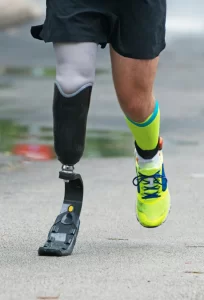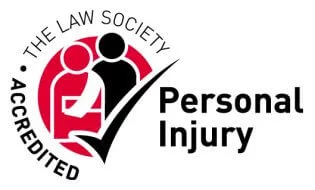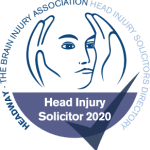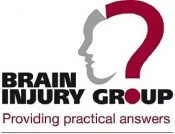Amputation Claims Solicitors
Making an Amputation Compensation Claim
Losing a limb can be one of the hardest injuries to come to terms with, but our expert Amputation Claims Solicitors can help you make an amputation claim to compensate you for your loss.
Amputation compensation claims can arise from various situations, including medical negligence and accidents. Proving negligence is crucial for a successful claim, which involves establishing fault and the extent of the injury, as well as understanding the support required for individuals affected by amputations.
Table of Contents
How can our amputation solicitors help?
An amputation can alter the course of your life, but it doesn’t have to dictate it.
Our serious injury claims solicitors have helped thousands of people regain their independence after an amputation. Our amputation claims lawyers provide crucial financial support and guidance, ensuring that clients can pursue their claims without financial worries through a No Win No Fee arrangement.
Whether you lost a limb due to a workplace accident, road accident, or something else, we can build a solid case for amputation compensation and help you get the support you need to move forward. Compensation cannot undo your injury, but it can help you adapt your home, buy custom prosthetics, and access the pain management, psychiatry, and rehabilitation services you need to rebuild your life.
We take a holistic approach to amputation claims. Besides securing the compensation you need—for the rest of your life, not just for now—we will also connect you with a network of amputation care experts so you can easily access these services.
Types of amputation claims
Around 5,000 to 6,000 major limb amputations are carried out each year in the UK. They can result from various catastrophic accidents, and our solicitors are well-equipped to handle all types of loss of limb claims.
Road accidents
Car accidents, motorcycle accidents, or bicycle accidents can result in serious injuries, including limb loss. A road traffic accident may lead to amputation instantly during the impact or as a subsequent medical decision due to the severity of your injuries. Motorcycle and bicycle riders are especially vulnerable due to the lack of physical protection compared to cars.
Road users have a duty to be reasonably careful and considerate towards other road users and must comply with relevant traffic laws. If someone else’s careless driving caused you to lose a limb, you may be entitled to compensation. Legal support is crucial for those affected by a road traffic accident to ensure they receive the compensation they deserve.
Workplace accidents
In some occupations, man and machinery work very closely together. Industrial jobs, especially manufacturing and construction, put workers at a higher risk of limb injuries due to heavy machinery, vehicles, and working at heights. For example, getting your arm trapped in a conveyor belt can lead to a traumatic amputation.
Workers’ safety should be their employers’ top priority, but health and safety measures are sometimes overlooked. If you have suffered an accident at work, our solicitors can help you claim compensation and ensure your employer takes steps to prevent similar accidents from happening to others.
Medical negligence amputation
Not all amputations are caused by external trauma; some happen due to medical procedures gone wrong. For example, a botched surgery or delayed diagnosis of an underlying condition such as diabetes can lead to sepsis or poor blood flow that requires a limb amputation.
In such cases, you may need to make an amputation negligence claim, which involves understanding the process and implications, including the importance of seeking legal advice promptly due to time constraints.
Healthcare professionals have a duty to provide you with a certain standard of care. You may have a medical negligence claim if they fall short of that duty. Our solicitors can help you navigate the complex legal process and secure the compensation you deserve.
Other accidents
Accidents that result in amputations can also occur in a variety of other unexpected settings, including:
- Falls from height
- Being crushed or pinned by heavy objects
- High-voltage electric shocks
- Explosive incidents, whether in a military or industrial context
- Limbs getting trapped in gaps or small spaces, such as between a train and the platform
Whatever the circumstances of your accident, if someone else’s negligence or misconduct played a role in your limb loss, our solicitors can help you hold the responsible party accountable and get justice for your injuries.
Choosing the right solicitor
Many factors affect the outcomes for amputees, including the type and extent of the amputation, your age, whether you can continue to work and perform daily tasks, and how well you and your family can cope practically and psychologically with the loss of a limb.
A wide range of complications can arise following amputation, including feelings of grief and phantom limb syndrome. Accessing a comprehensive range of support services is extremely important. The earlier you engage with therapeutic care, the better your chances of a successful recovery and adaptation.
Our solicitors understand that. From the beginning, our focus, as solicitors who specialise in catastrophic injury claims, has been to secure your funding quickly so you can access the best rehabilitation pathways as soon as possible and continue to access the best care for life.
Because amputations are life-changing injuries, they tend to attract the highest level of injury compensation. We have a proven track record of securing seven-figure settlements for our clients, enabling them to live comfortably and independently following their amputation injury.
Expert amputation claim solicitors
Where many firms may use unqualified case handlers, our team comprises qualified solicitors who specialise in winning catastrophic injury claims for our clients. Our team is ‘highly respected’ in complex, high-value personal injury claims, as quoted in Legal 500, and several of our team members are highly ranked in Chambers and Partners.
Partners Ben Posford and Robert Aylott lead in this area. Ben acts exclusively for claimants who have suffered life-changing injuries of the utmost severity, including amputations, and regularly contributes to the national media on the importance of rehabilitation and access to justice for amputees and other severe injury victims.
Rob is an amputation specialist and head of major trauma at the firm. He has helped hundreds of accident and medical negligence victims secure high-value compensation for their injuries.
Specialist amputation lawyers like Rob play a crucial role in addressing claims related to medical negligence, such as untreated pressure sores, that result in severe medical consequences, including amputation. He deals with claims worth several million pounds.
Support for living with the loss of a limb
The firm is a proud legal panel member of the Limbless Association, a leading national charity devoted to supporting and empowering amputees. We share their belief in getting early intervention and the best care and support following an amputation.
We are also a Major Trauma Signposting Partnership Approved Legal Partner. Rob regularly sees clients at St Georges’ Hospital, although our team can support and visit you anywhere in the UK.
Amputation claim case studies
We have a proven track record of obtaining six and seven-figure settlements for clients who have suffered traumatic amputations—and we can do the same for you. Read how we have helped other people here.
The amputation claims process
The claims process will depend on the cause of the amputation and who you are claiming against. For example, a medical negligence case against the NHS will follow a different process than a workplace accident claim against your employer.
Please book an initial consultation with our serious injury team to start a claim. In this meeting, we will listen to your story and advise whether we believe you have a valid claim.
Our solicitors will explain how the claims process works so you know what to expect. We will also discuss the options available to fund your claim. Almost all amputation claims can be pursued through a ‘No Win No Fee’ agreement. This means you will not be required to pay legal fees if you do not win your claim.
Amputation compensation and damages
How is compensation assessed in amputation cases?
How much compensation you receive for an amputation claim depends on various factors, including the severity of the injury and its impact on your lifestyle and ability to work.
Compensation is intended to put you back in the position you were in before your injury occurred. When it comes to amputations, this is not always possible. As a result, the compensation awarded will be based on the value of what you have lost and what you will need to live comfortably and independently.
Because compensation for amputations is assessed individually, the settlement amount can differ widely from one claimant to another. For example, a high earner who can no longer work because of amputation may have a sizeable future loss of earnings claim. A sporty young amputee may have a substantial claim for the cost of a custom-built sports prostheses.
The damages that you can recover include:
- Medical and care costs: This includes paying for private medical treatment, rehabilitation, therapy, counselling services, private caregivers, and any other type of care support.
- Prosthetics: The cost of prostheses, orthotics, and mobility aids, including custom or state-of-the-art limbs for specific activities such as sports or work.
- Adaptations: Any modifications to your home or vehicle to accommodate your amputation injury.
- Pain and suffering: This refers to the physical pain caused by an amputation injury, as well as the emotional and psychological trauma that might accompany it.
- Lifestyle changes: These damages are intended to compensate you for the injury’s impact on daily activities, relationships, hobbies, and overall quality of life.
- Loss of earnings: When you lose a limb, you will be unable to work for a period, or you may not be able to return to your previous line of work. Loss of income can be a significant part of the compensation you receive, particularly if you hold a high-paying job.
What is a typical amputation claim payout?
People who undergo limb amputation often require years of support and rehabilitation, and this may include counselling and psychological treatment for both themselves and their families. Home adaptations and loss of earnings can also be substantial.
For this reason, amputation cases that involve a major limb (arm amputation claims, leg amputation claims, hand amputation claims, foot amputation claims) can attract multi-million-pound settlements.
The severity of your injury is the primary deciding factor that goes into calculating the settlement value. If you have suffered a partially amputated finger, you realistically will receive less than someone who has had an arm amputated and requires a prosthetic limb.
Support and rehabilitation services
Recovering from an amputation is a journey that extends far beyond the operating room and involves more than just the physical healing process. At Osbornes Law, we understand that comprehensive support and rehabilitation services are crucial to your recovery and independence.
Soon after you contact us, we will provide access to free Independent Needs Assessments. This service evaluates the impact of your injury and identifies the support you need, both now and in the future. We will seek early interim payments to fund the rehabilitation required wherever possible. Early interim payments are made before the claim is settled and go a long way toward ensuring your immediate needs are met.
Access to medical care and rehabilitation
We ensure that our clients have access to the highest-quality medical care and rehabilitation services. This includes arranging for physiotherapy, occupational therapy, and any additional specialist support you may require. We aim to facilitate your return to the highest level of function and independence possible.
Psychological Support
The emotional and psychological impact of amputation cannot be overstated. For many, the loss of a limb can trigger a grieving process along with potential long-term psychological challenges. We advocate for consistent psychological support, including counselling and therapy, to aid in adjusting to life post-amputation and to promote mental well-being.
Prosthetics
Adapting to life with a prosthesis is an essential aspect of rehabilitation post-amputation. We work with leading limb loss charities to ensure you have access to the most advanced prosthetic technology suited to your individual needs. Whether for everyday use or specialised activities, we aim to connect you with prosthetics services that enhance mobility and autonomy.
Adaptation to Lifestyle Changes
Post-amputation life may require significant adaptations to your lifestyle. From home and vehicle modifications to integrating assisted technologies, we aim to secure the services and funding to make these transitions seamless.
Funding your limb loss claim
We have a range of funding options to help you finance your amputation claim. Most claims are managed on a ‘No Win No Fee’ basis. This approach allows you to proceed with your claim without any upfront costs, and you will only pay a fee if we successfully secure compensation for you.
If you have legal expenses insurance or are a trade union member, your legal fees may be covered by insurance. We can look into this for you.
It is also possible to self-fund your legal case. If you choose this option, rest assured that we provide a transparent fee structure and will discuss the potential costs with you from the outset.
What role does Osbornes Law play in the claims process?
Amputations are among the most serious injuries. Claims can be incredibly complex and result in very high settlements. Since most personal injury claims end up on the desk of an insurance company, you need a legal team that knows how to deal with these large organisations.
To ensure your claim is as stress-free as possible, we will handle all correspondence with the responsible party, their legal team, insurance companies, the court, and any other third parties involved in your case. We will also handle negotiations on your behalf and ensure you receive the full amount of compensation you are entitled to.
Your rehabilitation is our priority. Besides handling the legal aspects of your claim, we will connect you with charities, support groups, and medical professionals who can help you cope with the emotional and physical challenges of amputation.
Amputation Claims FAQs
What constitutes an amputation claim?
An amputation claim is a type of personal injury claim. To be able to claim compensation for the loss of a limb, we need to be able to show that:
- Someone owed you a duty of care.
- They breached that duty of care and you were harmed.
- The injury directly led to the loss of your limb.
Don’t worry about whether someone owed you a duty of care. We will discuss your circumstances in detail when you contact us and determine whether you have a valid claim.
What are some common causes of amputations?
Amputations occur in a wide variety of accidents including car accidents, dangerous machinery accidents,falls from height, trap incidents and explosions. They can also occur as a result of medical negligence, for example, where infection is not controlled properly or inadequate care is provided, leading to the need for amputation.
Our specialist team is experienced in all types of catastrophic injury cases. You will always be matched with a solicitor who has specific expertise in dealing with the type of accident that caused your amputation.
How is loss of limb compensation calculated?
Compensation for amputation claims is made up of two parts:
- General Damages: This covers the pain, suffering and loss of amenity caused by your amputation.
- Special Damages: This covers any financial losses you have incurred or will incur as a result of the amputation. Special damages could include lost earnings and loss of future earnings, medical expenses, rehabilitation, counselling, prosthesis and mobility aids, home adaptations and future care costs.
The amount of compensation awarded is unique to each individual case and depends on various factors, such as your age, the severity of the injury and its impact on your life. Our experienced solicitors will work with you to ensure that all relevant costs are included in your claim.
What are the time limits for making a loss of limb claim?
In general, personal injury claims have a time limit of three years from:
- The date of the accident or injury, or
- The date when you first became aware that your amputation was a result of someone else’s negligence.
However, there are exceptions to this rule, such as cases involving children or individuals with mental incapacity. It is important to seek legal advice as soon as possible if you believe you have a valid amputation claim.
What evidence is required for an amputation claim?
Successful amputation claims hinge on robust evidence to establish the negligence of the responsible party, and to support the value of the claim.
Your solicitor will work with you to gather the best possible evidence, which might include:
- Medical records from the hospital that treated you
- Witness statements from those who saw the accident or were involved
- Photographs of the accident scene
- CCTV or dash cam footage
- Accident logs
- Investigation reports from the Health & Safety Executive
We will also arrange for you to visit one or more independent medical experts. The experts might be surgeons, occupational therapists, psychologists, plastic surgeons or reconstruction specialists who specialise in the type of amputation injury you have sustained.
They will provide a report establishing the extent and impact of your amputation, including any potential future needs it creates. This medical report is a vital part of any amputation claim. It helps us accurately value your compensation amount.
Will I have to go to court?
It is rare for personal injury claims to go to court. We always try and negotiate claims out of court. However, in cases where your opponent doesn’t accept responsibility or doesn’t agree with the amount of compensation we feel you need, we will start court proceedings. Even when trial dates have been set, most claims that reach this stage are resolved with a pre-trial settlement. This allows you to get the compensation that you deserve without the need for a hearing.
Osbornes Law is a really strong team with a lot of depth.
Osbornes work professionally as a team, responding diligently to emails or telephone calls.
Rob Aylott is a first port of call for serious amputation claims.
Osbornes clients are individuals whose cases are treated with the focus required when dealing with life changing injuries.
Fielding a ‘first class, very well resourced’ team of litigators, the personal injury department at Osbornes is rated for its diverse workload of complex, high-value injury claims, representing both domestic and international claimants.
Osbornes is an excellent firm, made up of lawyers with flair and pedigree.
Osbornes lawyers are smart, well trained, experienced and well managed.
Osbornes personal injury practice is first class; very well resourced and second to none.
Osbornes is becoming one of the top players in the claimant personal injury market. A large team with a great number of very high quality solicitors.
Osbornes is a highly proficient serious injury firm. They bring all the benefits of the biggest firms in the market but none of the downsides.
Osbornes prepares cases well; the whole team is good and lawyers there know their stuff.
They deal with people compassionately and take on the right amount of detail. The firm has some really brilliant key solicitors.
The personal injury team is responsive and its level of service towards clients and other professionals is exceptional and high quality
The team offers specialist expertise in cycling-related injury claims and regularly acts for foreign nationals.
It has considerable experience in cases arising from motor accidents and accidents at work
Osbornes is a well-regarded personal injury practice well equipped to advise on high-value and high-profile claims.
Their team includes bright, hard-working solicitors dedicated to achieving successful outcomes for their clients from partner level to paralegal. Their client care is exceptional.
They are a team who are highly respected in the PI sector.
This is an excellent PI team doing a broad range of PI work.
Osbornes’ ‘highly respected‘ personal injury team is experienced in a range of complex, high-value claims, with notable strength in acting for European clients for whom English is not a first language.
Osbornes’ ‘highly respected‘ personal injury team is experienced in a range of complex, high-value claims
Osbornes’ ‘highly respected‘ personal injury team is experienced in a range of complex, high-value claims.
Rob Aylott is adept at handling sensitive and complex catastrophic injury claims. He offers a particular specialism in amputation claims.
"Rob Aylott is adept at handling sensitive and complex catastrophic injury claims. He offers a particular specialism in amputation claims."
Sophie Davies specialises in brain injury and lower limb amputation cases.
"Sam Collard is recognised for his talent in complex brain and amputation claims, developing strength particularly in quantum issues and sporting injuries and accidents."
"They punch well above their weight. The quality of service they provide equals that of any of the larger top-name firms in this area"
Ben Posford is fiercely bright, with an unrivalled passion for his clients’ cases. His encyclopaedic knowledge of all things PI is second to none. His foresight and commercial nous have propelled Osbornes into the highest echelons of the market where they rightly belong.
The firm has an excellent and innovative line in cases involving non-English speaking claimants, managed by recruiting paralegals with multi-language skills – an impressive route for expansion of the caseload.
Great expanding team with expertise and respect in the sector. Led by a commercially savvy and business minded team.
A really excellent group of PI solicitors, notable for their individual quality.’
A niche firm that punches well above its weight in the catastrophic injury sector, borne out by the quality of work they obtain.
This combination of experience and diligence reaps massive rewards for clients, Osbornes being well known in the industry as a fantastic firm.
The Osbornes personal injury team now comprises some of the most technically adept and hard hitting lawyers in the business.
Excellent coverage of personal injury, and traumatic brain injury. There is a real specialism in claimants who do not speak English as a first language.
The group is noted for its expertise in matters relating to cycling injuries, and is the official legal partner of the London Cycling Campaign charity.
To complement its strong reputation for high-value and complex personal injury work, the firm continues to develop its 'excellent and innovative line in cases involving non-English speaking claimants'
"Osbornes comprises some of the most technically adept and hard hitting lawyers in the business"
"A small but high-powered team, dealing with cases of significant value and complexity."
"An excellent firm which achieves fantastic outcomes for clients."
"Osbornes Law have captured the magic of keeping the customer service levels of a smaller firm whilst having all the expertise and power of the biggest firms."
"A superb boutique catastrophic injury firm."
"Really good at dealing with people who have suffered a serious injury."
"Affable and charming with very good client-handling skills."
"superb firm with consummate professionals and a human touch."
Osbornes now has a team of highly experienced personal injury lawyers; particularly strong on high-value quantum cases, workplace accidents and claims involving foreign workers injured in the UK.
The team provides fantastic strength-in-depth for personal injury claims. It is also particularly well placed to service clients from Eastern Europe with specialist native language speakers. From the smallest case to a multimillion-pound spinal injury case, Osbornes has the right staff to manage every claim.
Ben Posford remains pre-eminent in his field with expert understanding of litigating cases of the upmost severity. His experience builds on Stuart Kightley’s running of the firm with recent partner additions of Rob Aylott making a fantastic addition.
A firm going from strength-to strength-which retains its client care whilst being able to offer a full personal injury service.
Beneath Ben Posford’s calm and reassuring presence, which clients love, lies a formidable tactical and legal brain. His experience tells and he gets it right at every stage of the process from arranging the best possible rehabilitation, to ensuring, so far as possible, a polite relationship with those acting for the defendant in order to ensure best and early resolution of the claim.
"Clients say he is very impressive, in terms of both his experience and his management of the personal injury team."
"They have an expanding profile in personal injury and clinical negligence and offer a superb, broad service in accidents abroad, enabled by their recruitment of bilingual legal executives who can guide non-English speakers through complex litigation."
"Solid personal injury practice well equipped to advise on high-value and high-profile claims arising from fatalities and severe head and spinal injuries."
"Offers specialist expertise in cycling-related injury claims."
"Offers specialist expertise in cauda equina syndrome cases."
"An exceptional outfit. They take on difficult cases, fight hard and win."
"Stuart Kightley is an incredibly empathetic solicitor who is very knowledgeable about traumatic brain injury."
"They are an outstanding firm to work with. They are consistently impressive in their work."
"Osbornes often handles claims valued at over £1m, particularly relating to severe brain and spinal cord injuries and niche areas such as cauda equina syndrome and cycling accidents."
"The hard-working, thorough and committed Robert Aylott, who brings significant heavyweight personal injury experience."
"Key team members include the energetic and personable Stuart Kightley who is head of the personal injury department."
Thank you for the hard work and patience and for being so patient with my constant questions.
"I have found Osbornes to be thorough, clear and understanding from the initial call. They do exactly what they say they will and with passion! I would recommend them to anyone".
Very good efficient service. Would not hesitate to use again.
I will use Osbornes for any future needs.
I don't think I could have asked for anything more. One of the best dealings I've had with the legal profession.
Sam was excellent and very professional in dealing with our claim.
Head of the personal injury department, Stuart Kightley is a first-rate practitioner, wholly focused on getting his client the best outcome in a pragmatic, sensible and consensual manner.
As a real specialist in spinal cord injuries, Ben Posford is always looking at new angles on how to maximise his cases.
Ben Posford is one of the best catastrophic injury lawyers around.
They provide exceptional service, great knowledge and understanding of the law, excellent client care and tactical nous
Stuart Kightley is praised for his expertise in catastrophic and fatal claims. Clients say he is very impressive, in terms of both his experience and his management of the personal injury team.
My claim was dealt with efficiently and professionally. Communication was excellent, and timely. Shrewd and sound advice was provided at every stage of the claim from beginning through to completion. On the basis of my personal experience I would strongly recommend Osbornes.
I just wish to thank you for your hard work and successful outcome. I am pleased with the result and would recommend you and your firm to anyone in the future.
Ben Posford … is ‘tactically astute’ and ‘one of the best personal injury solicitors around’.
Ben Posford ‘knows how to maximise the value of the claim for his clients’.
Client StoriesVIEW ALL
- 18.1.2023
Pedestrian receives £1.75 million following amputation
Kate Milton, acted on behalf of a Romanian National who was hit by a vehicle as she was walking home...
Read more - 16.11.2021
Significant lump sum for leg amputation
Introduction Mr N, a Romanian man in his 30s, came to the UK to work with his father-in-law in early 2018....
Read more - 5.11.2021
Seven figure leg amputation settlement
Workplace accident results in life-changing injury When our client (Mr S) suffered a devastating crush injury at work that led...
Read more - 1.7.2021
Limb amputation to pedestrian awarded £1.8million
Client Suffers Life-Changing Injuries in Pedestrian Accident Our client suffered life-changing injuries as she was walking home from work. A...
Read more - 23.6.2021
Client Story: Construction Accident Results in Amputation
Our Client’s Background and Employment Mr C a young Romanian national, came to this country for work in 2015. He...
Read more - 17.6.2021
Life changing injuries following motorbike accident
London motorcyclist hit by lorry Our client, who is from Hungary was riding his motorbike in London when a lorry...
Read more - 13.8.2019
Osbornes settles finger amputation claim for record £1 million...
Osbornes acts for a factory worker who suffered partial finger amputations on his dominant hand when it got caught in...
Read more
Essential reading
Our Personal Injury Team View the whole team
Rob Aylott
 Partner
Partner
Personal Injury SolicitorsSam Collard
 Partner
Partner
Personal Injury SolicitorsSophie Davies
 Partner
Partner
Personal Injury SolicitorsLaura Swaine
 Partner
Partner
Personal Injury SolicitorsNicola Hall
 Senior Associate
Senior Associate
Personal Injury SolicitorsAndrew Middlehurst
 Senior Associate
Senior Associate
Personal Injury SolicitorsView the
whole team


















